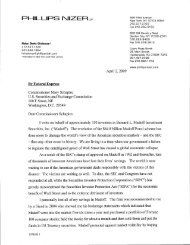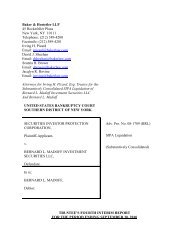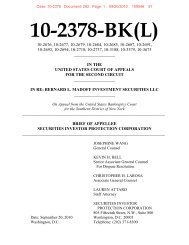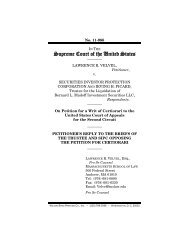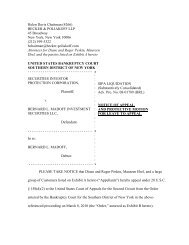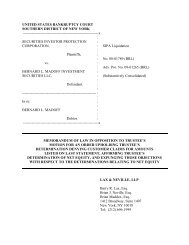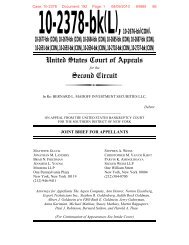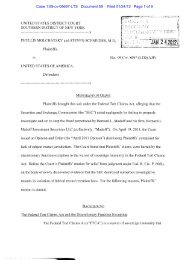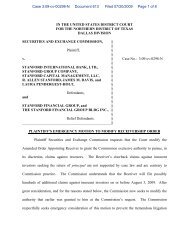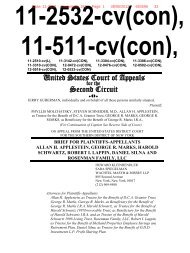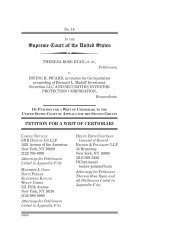Davis Polk & Wardwell LLP 450 Lexington Avenue New York, New ...
Davis Polk & Wardwell LLP 450 Lexington Avenue New York, New ...
Davis Polk & Wardwell LLP 450 Lexington Avenue New York, New ...
Create successful ePaper yourself
Turn your PDF publications into a flip-book with our unique Google optimized e-Paper software.
therefore has no bearing on the interpretation of “net equity” in SIPA, and instead<br />
supports the principle that a governing statute must be followed.<br />
The Trustee and SIPC also rely heavily on equity receivership cases. See CFTC<br />
v. Topworth Int’l, Ltd., 205 F.3d 1107 (9th Cir. 1999); CFTC v. Equity Fin. Group, No.<br />
Civ. 04-1512, 2005 WL 2143975 (D.N.J. Sept. 2, 2005); SEC v. Funding Res. Group,<br />
No. 3-98-CV-2689-M, 2004 WL 1189996 (N.D. Tex. May 27, 2004); SEC v. Credit<br />
Bancorp, Ltd., No. 99 Civ. 11395, 2000 WL 1752979 (S.D.N.Y. Nov. 29, 2000); CFTC<br />
v. Franklin, 652 F. Supp. 163 (W.D. Va. 1986). But, unlike in cases governed by statute,<br />
receivership courts are given great discretion, unfettered by specific statutory mandates,<br />
to fashion remedies. These cases have no relevance to proceedings governed by SIPA<br />
and the Bankruptcy Code. As recognized in SEC v. Byers, a “bankruptcy court would<br />
have less flexibility in determining the most equitable approach to distribute assets to<br />
victims,” than would a court overseeing a receivership. 637 F. Supp. 2d 166, 176<br />
(S.D.N.Y. 2009). 10<br />
In another non-SIPA case cited by the Trustee and SIPC, In re Tedlock Cattle Co.,<br />
552 F.2d 1351 (9th Cir. 1977), the bankruptcy trustee in fact agreed that under applicable<br />
state law the investors in the Ponzi scheme had allowable claims for benefit-of-thebargain<br />
damages, not just invested principal. See id. at 1352. In addition, the “equitable”<br />
distribution sanctioned in Tedlock Cattle (relying on In re Young, 294 F. 1 (4th Cir.<br />
1923)) has been foreclosed by the Supreme Court, which has squarely held that Section<br />
510(c) of the Bankruptcy Code, not sweeping notions of “equity,” governs the<br />
10 Precisely because receiverships lack “the guidance of the bankruptcy code,” the Second Circuit<br />
has instructed that bankruptcy proceedings are preferable to receiverships in liquidations of broker-dealers.<br />
See SEC v. Am. Bd. of Trade, Inc., 830 F.2d 431, 437 (2d Cir. 1987).<br />
9



